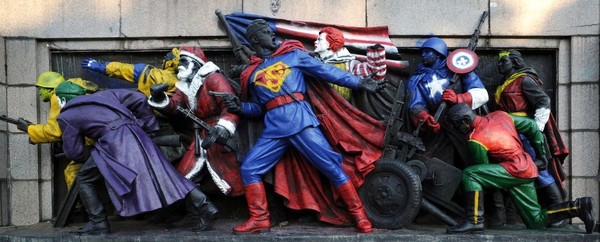Thirty years ago, crowds of Romanians filled the Palace Square in Bucharest where Nicolae Ceaușescu, a communist dictator who ruled Romania since 1965, was going to address the nation. Ceaușescu planned to show that he still had power over the country despite massive protests against the government, but once the dictator started to speak, the crowd started booing. Quickly realizing that he had no control over the people, Ceaușescu attempted to flee the country the next day, but was caught. This was the beginning of the Romanian Revolution and the end of the communists’ fifty-year long reign over Eastern Europe.

Some countries like Czechoslovakia managed to go through a bloodless change of power, while others like Yugoslavia went through brutal wars, genocides, and total collapse of the state. Nevertheless, all Eastern European countries embraced the principles of democracy and market economy. With the statues of Lenin removed from the city squares, the newly elected governments were praising the principles of a free-market economy, democracy, liberalism, and pro-European politics. The shift from a state-planned economy to a market-based one meant that the countries had to go through “shock therapy”, where consumer goods prices changed overnight. People were willing to accept it, believing that it was “bad for the greater good”.
Powered by financial aid from Western Europe and the United States, Eastern European countries were able to improve their infrastructure and economies. But as they transitioned to capitalism, people knew that it would soon be determined who would become rich and who would stay poor. Thirty years later, Eastern Europeans realized that while their living standards increased, so did the level of social inequality; their disappointment with liberalism did not take long to reverberate throughout the nations. Much to the European Union’s (EU) surprise, conservative populist parties have won major elections across the region.
Eastern Europeans were clearly not satisfied with the ideology they used to believe in. They expected to live well like the people in Germany, but instead, what they got was increasing social inequality, corruption scandals, and mass unemployment. The 2008 financial crisis was perhaps the final nail in the coffin of liberalism. For decades, Eastern Europeans thought that their Western counterparts knew what they were doing, and things would get better if they simply followed. But the crisis proved otherwise, and once the people realized that they had been disillusioned, their ideological support of liberalism fell apart.
Consider Poland, the most illustrative example of the region’s transformation. Poland was once hailed as the most promising member state of the EU, with 72% of Polish people approving EU membership. With millions of euros donated by the union, Poland was able to significantly develop its infrastructure. The country’s former prime minister, Donald Tusk, even became the president of the European Council. Things were going well for Poland and the rest of Eastern Europe — there was an optimistic belief in democracy, as well as rising standards of living and increasing freedom of the press. But everything suddenly took an unexpected turn. As the right-wing Polish party won the elections in 2015, it took over the judicial courts, fired over 11,000 civil servants, and replaced the military high command. The country is now fiercely resisting the EU’s refugee aid programs, claiming that it will do everything to keep Poland independent and strong, and won’t succumb to the demands of EU politicians in Brussels.
In the blink of an eye, countries like Poland and Hungary have gone from liberal democracies to nationalist autocracies whose leaders promise to resist the Western pressure to adopt policies of globalization and tolerance. What was once associated with the beliefs in freedom of speech, dignity of the individual, and the right to freedom of movement now symbolizes the disproportionate distribution of wealth in the hands of a powerful few. Thirty years ago, thousands of people in Eastern Europe were protesting against communism. Now that they protest against liberalism, the West needs to understand where things went wrong; otherwise, they risk losing the entire region to authoritarian powers.

